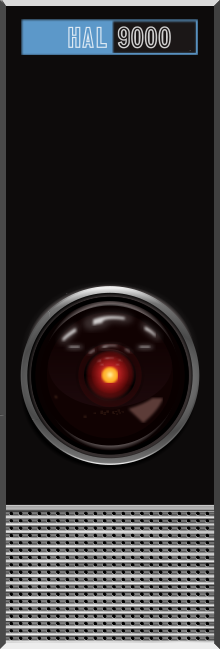Okay, this one’s going to feel a bit random, but stick with me…
My junior year college roommate was a friggin’ brilliant guy (he teaches biochemistry now). We used to stay up late working out the solutions to scientific problems like “how many hamburgers would it take to reach Pluto?” and other important things we did not get a Nobel prize for. It really was one of those higher-education experiences you only seem to read about– we just liked figuring out the answers to things, and we were in a position where we could spend a random hour (or more) doing it.
And—again—not being rewarded with a Nobel prize for our scientific work.
Anyway, John introduced me to the idea of invisible math. If you and I are on opposite ends of a lawn and I toss a baseball to you, there are so many measurements and calculations that need to be made. Think about it. Distance. Height. Speed. Weight of the ball. Force to put behind the ball. The torque of your arm. Arc. Rate of descent. Air resistance. Wind resistance. And there’s more past that. Every time we throw a baseball, there’s so much invisible math behind it.
But most of the time… we just throw the baseball. Our brains do all that math subconsciously for us. They’re pretty cool, right?
In fact, weirdly enough, if you think too much about any of these things as you’re getting ready to throw, you’ll probably mess it up somehow. Try to concentrate on two or three of those factors and you’ll almost definitely mess up your throw.
Which, of course, brings us to Lindsay Lohan.

If you somehow didn’t know, Lindsay Lohan was a fairly talented Disney kid who eventually moved into “older” roles when she could. But as her roles became more and more serious, her performance became more and more… Well, let’s politely say erratic. Unpredictable.
Now, if you are familiar with Ms. Lohan, I know the easy thing to do is giggle, maybe punch down a bit, and point at all the reports of addiction and abuse that came out as she got older. But please consider this. She was a pretty solid child actor. Seriously. She carried a bunch of movies. But even after she got cleaned up and dealt with some parts of her life, her performances were still kind of all over the place.
Now, I don’t know Lindsay Lohan. I think we were living in LA at the same time, so we’ve probably been within, say, a mile of each other one or thrice. Maybe even a few yards? Point is, I’m kind of guessing here, based on my own experience.
That said, I’d bet real money when she started doing “serious” movies, now that she was a real actor… people started telling her how to act. Maybe she took a class or got a coach. Doing a bit of ye olde method acting, perhaps? Maybe she started putting serious thought into motivations and stage business and presence.
I bet she started thinking about how to throw the baseball.
See where I’m going here?
For most of us, when we first decide we want to tell a story, we just sit down at a computer or pick up a pen and… we start writing. That’s it. We don’t think about grammar or structure or character arcs. We just write about cool stuff we like. Romance. Monsters. Space battles. Wizards. Ninjas. Lizard people! We make characters who are basically us (but cooler! and more popular!) and they go have adventures of one kind or another.
But eventually (hopefully!) someone sits us down and talks to us about grammar. And story structure. And character arcs. Maybe even themes! They tell us how to write. Maybe it’s a schoolteacher. Or a college professor. Maybe it’s a book we willingly picked up, not knowing the awful things it was going to teach us.
And it’s my personal belief that people have one of three reactions at this point.
One group of people essentially say, well, screw this. Turns out writing is way harder than I thought it was. And a lot less fun. And they walk away from this and go become frustrated studio execs or bureaucrats or something.
The second group says wow, I didn’t realize there were so many important rules. I better follow them all! To the letter! At all times! And these people keep writing but it loses a lot of the fun for them and I think.. well, most of them stop being any good. They get so focused on all those rules and guidelines—the stuff we never actually register—that they lose the ability to actually tell a good story. They’re more concerned with making sure the math works out than they are with throwing the baseball.
And the last group?
They’re the ones who take this new knowledge, sift through it, and apply it where they can. They keep writing and try to work with it, rather than wrestling their writing to fit all the rules. They know sometimes all this stuff matters and sometimes… you’ve just gotta write like you’re nine again. Dance like nobody’s watching. Write like nobody’s going to read it. There’s a time and place for all those rules, but its not right now.
Please note I’m not saying ignore the rules. Rules help. They really do. But that’s the key– the rules are there to help me tell my story. They shouldn’t be shaping it. My story doesn’t exist so it can be an example for how all the rules work.
Really it’s a forest-for-the-trees thing. I want to be aware of the rules. I want to know them. I want to understand them. But I don’t want to be focused on them.
My focus should be on my story.
Next time… I think I may babble on about the different ways we can get from A to Z.
Until then, go write.




